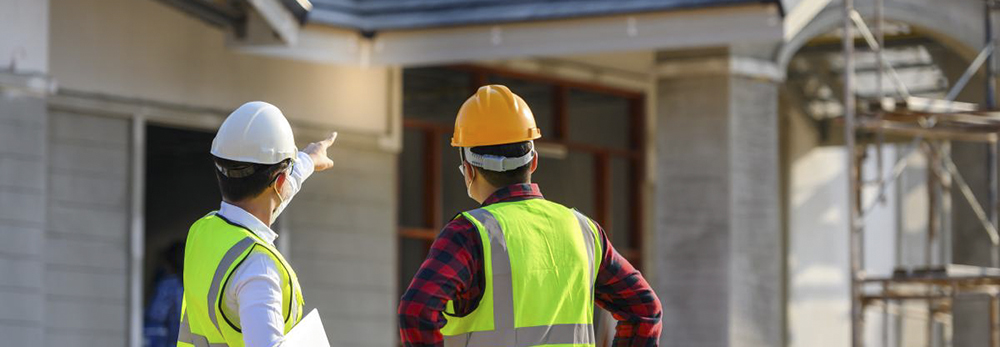Advice published for buyers after survey highlights concerns over new-build homes quality
Contents |
[edit] New build housing research and guide
New research from a leading construction professional body shows a large proportion of people would not buy a newly built property due to concerns over quality.
The Chartered Institute of Building (CIOB) has published its ‘New Build Housing: How regulation can improve the consumer journey’ report. It explores public perceptions of new build homes along with levels of awareness of the standards housebuilders must adhere to and where to turn for help when they’re not met.
Its findings highlight how housebuilders need to do more to demonstrate quality to potential buyers when marketing new homes.
It also includes results from a consumer survey of 2,000 UK adults* which found that 55% believe older homes are of better quality than new builds compared to 21% who think new builds are better. Almost a third of survey respondents (32%) chose to describe new build housing as ‘poor-quality’.
The report is accompanied by a guide for anyone considering buying a new build home which informs them of the protections they have as well as what they can do to identify issues in their home.
[edit] CIOB comment
CIOB says in the midst of a housing crisis, where the choice of homes can be limited, its important consumers understand instances of poor-quality new builds are less common and have an awareness of the measures in place to hold housebuilders to account if they do experience problems. They also recommend anyone buying a new build property enlists the services of a professional snagging company to identify defects, many of which aren’t visible to the untrained eye, which can then be flagged to the developer for resolution.
David Parry, CIOB’s parliamentary & public affairs officer and author of the report, says although minor snagging with new builds is commonplace, the overall quality of new builds has improved in recent years.
“Our research shows the majority view of new build homes is that they’re of low quality and this puts many people off from considering buying one,” said Parry.
“However, the reality is that quality has improved, and new builds are for example generally much more energy efficient than older homes as must adhere to more stringent regulations such as the Future Homes Standard, so have lots of positives.
“Our report is designed to provide consumers with reassurance that the majority of housebuilders are signed up to a very clearly defined and high set of standards while, for those who do encounter issues, there is an ombudsman to intervene if a housebuilder fails to meet those standards and doesn’t resolve problems adequately.”
CIOB’s survey also shows there is a lack of trust in housebuilders to build new homes to a high standard with around 33% of respondents indicating they have a ‘low level of trust’ and 63% saying they are very or somewhat concerned about potential issues with new build housing. CIOB says housebuilders have a leading role to play in rebuilding consumer confidence by better promoting the standards they are committed to and providing buyers with clear information on how they are regulated.
[edit] The New Homes Quality Board
The New Homes Quality Board (NHQB) is an independent body formed by Government in 2021 to ensure consistently high standards of quality and service are met by housebuilders. Currently registration with the NHQB is not mandatory, although around 80% are registered and the number is increasing all the time. CIOB is calling on Government to undertake a review of the NHQB to understand whether registration should now become mandatory for all housebuilders.
In addition, the New Homes Ombudsman (NHO) can investigate situations where a customer is not satisfied with the resolution set out by their housebuilder on a matter of quality, information or customer service.
Parry adds: “According to our survey only 13% of people would go to the New Homes Quality Board if they had a problem with a new build home. For those who have purchased one in the last year, that figure went up a fraction to 18% so clearly awareness of the body is very low despite most buyers being given information about them during the purchase process. A wider consumer awareness campaign would be a sensible way to increase awareness and give prospective buyers the confidence to consider a newly built property.”
[edit] CIOB’s top tips
- Check if the housebuilder is registered with the New Homes Quality Board (NHQB). Around 80% of developers in England are registered, or are currently going through registration, and if they are they are committed to a well-defined set of standards called the New Homes Quality Code (NHQC)
- If the housebuilder isn’t registered with the NHQB ask them about any other codes or standards, they may be signed up to Employ a reputable snagging company to visit your property before you move in or within the first few weeks of moving in, to check for defects. Not all defects can be seen by the untrained eye so getting in a professional to thoroughly check the property over is highly recommended
- If your snagging company finds any defects, report them to the housebuilder immediately and refer back to the NHQC or their own set of standards
- Your housebuilder must be given the opportunity to rectify any issues with the property before you take your complaint further If the housebuilder doesn’t resolve the problems to a satisfactory standard or if no agreement can be made on fixing the problem, you can take your complaint to the New Homes Ombudsman
- The New Homes Ombudsman will also deal with problems in the purchasing or post-sale experience processes.
- Download CIOB’s report and new advice guide at www.ciob.org/newbuilds
This article appears on the CIOB news and blog site as "Advice published for buyers after survey highlights concerns over new-build homes quality" dated December 14, 2023.
--CIOB
[edit] Related articles on Designing Buildings
- Advice published for buyers after survey highlights concerns over new-build homes quality.
- All Party Parliamentary Group for Excellence in the Built Environment.
- BSRIA response to New Homes Ombudsman.
- Building better homes faster.
- Empty housing in London - documentary.
- Home ownership.
- Housing shortage.
- New Homes Quality Board.
- New Homes Ombudsman.
- Redfern review into the decline of homeownership.
- The Housing Ombudsman Service.
Featured articles and news
Repairing historic stone and slate roofs
The need for a code of practice and technical advice note.
UKCW London to tackle sector’s most pressing issues
AI and skills development, ecology and the environment, policy and planning and more.
Managing building safety risks
Across an existing residential portfolio; a client's perspective.
ECA support for Gate Safe’s Safe School Gates Campaign.
Core construction skills explained
Preparing for a career in construction.
Retrofitting for resilience with the Leicester Resilience Hub
Community-serving facilities, enhanced as support and essential services for climate-related disruptions.
Some of the articles relating to water, here to browse. Any missing?
Recognisable Gothic characters, designed to dramatically spout water away from buildings.
A case study and a warning to would-be developers
Creating four dwellings... after half a century of doing this job, why, oh why, is it so difficult?
Reform of the fire engineering profession
Fire Engineers Advisory Panel: Authoritative Statement, reactions and next steps.
Restoration and renewal of the Palace of Westminster
A complex project of cultural significance from full decant to EMI, opportunities and a potential a way forward.
Apprenticeships and the responsibility we share
Perspectives from the CIOB President as National Apprentice Week comes to a close.
The first line of defence against rain, wind and snow.
Building Safety recap January, 2026
What we missed at the end of last year, and at the start of this.





















